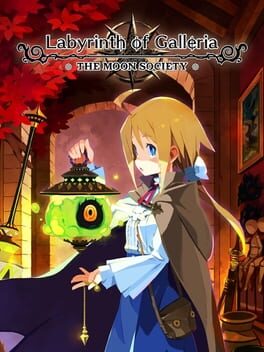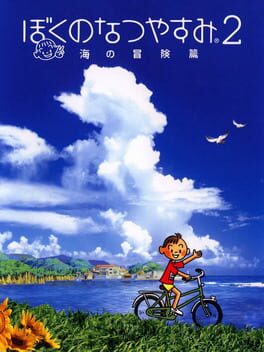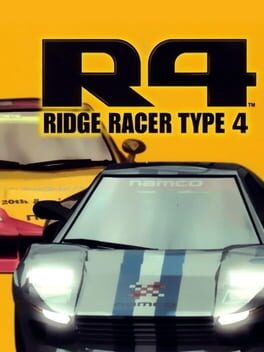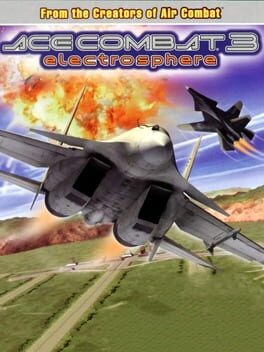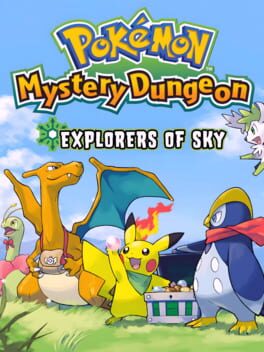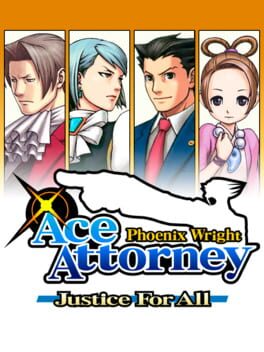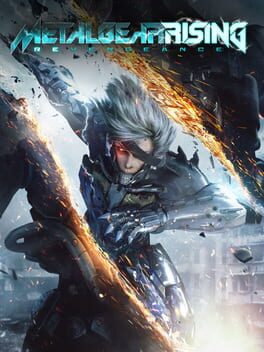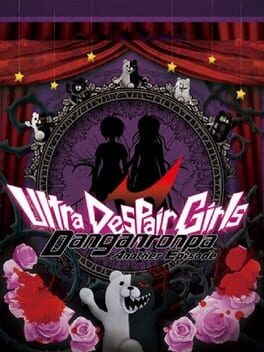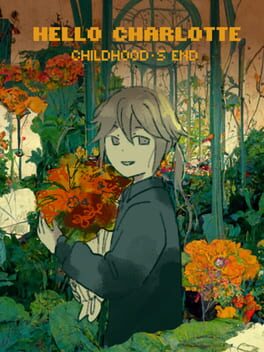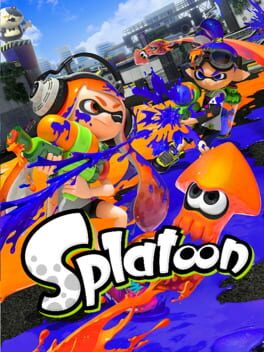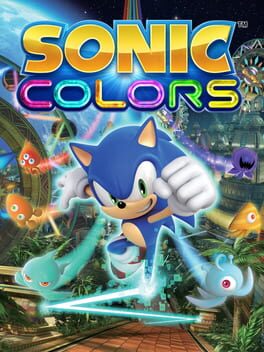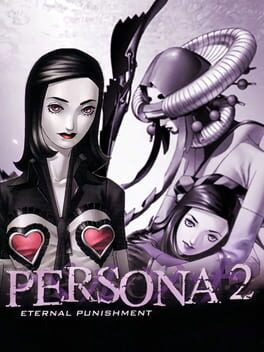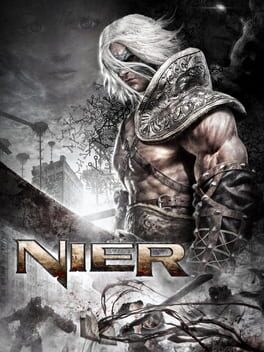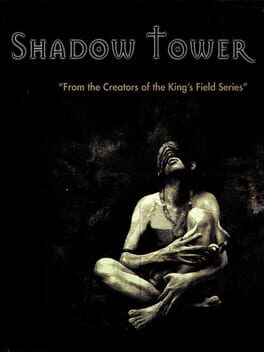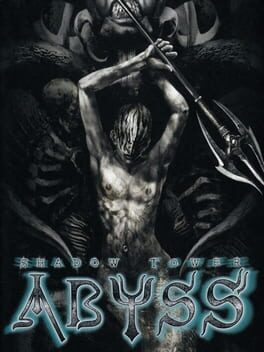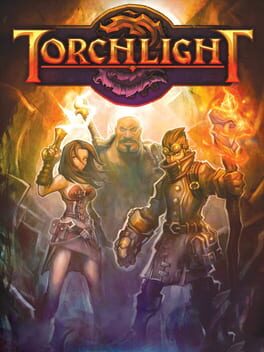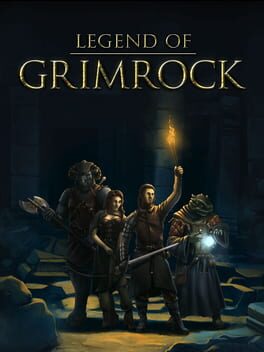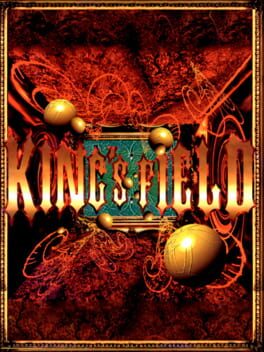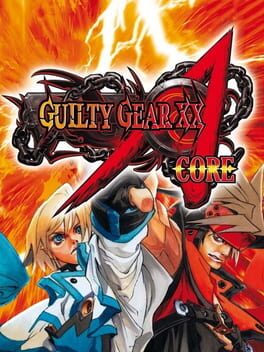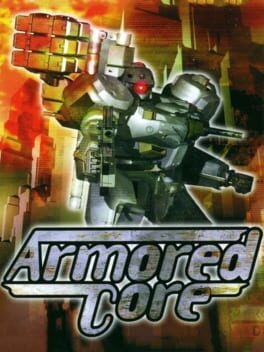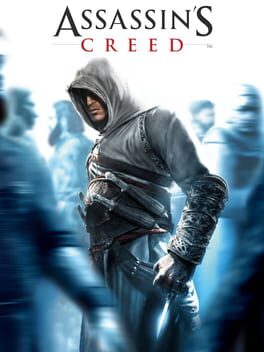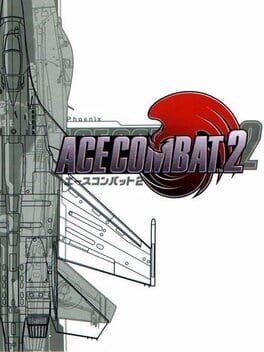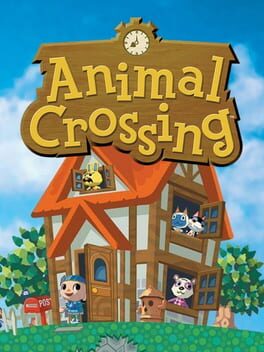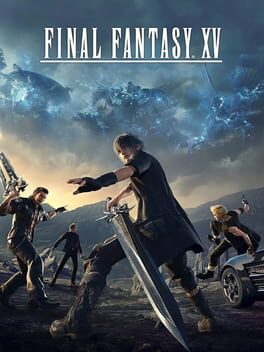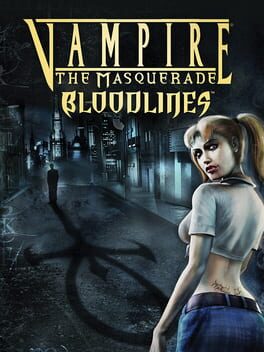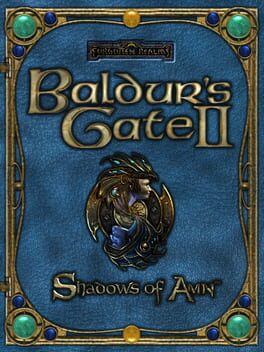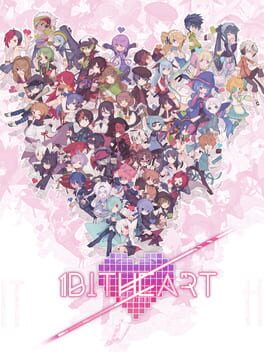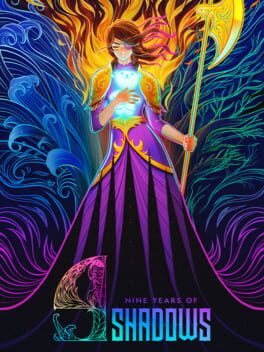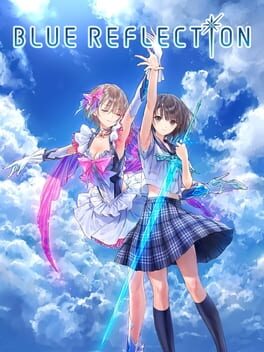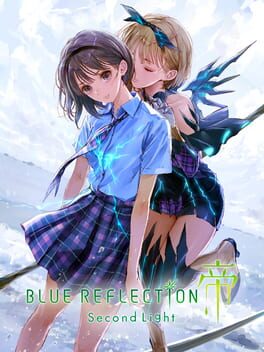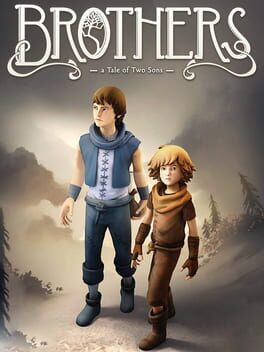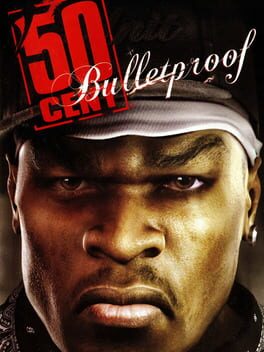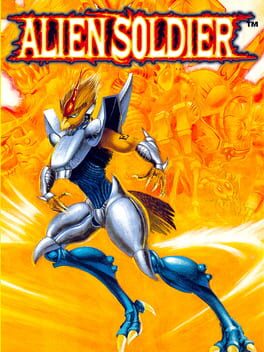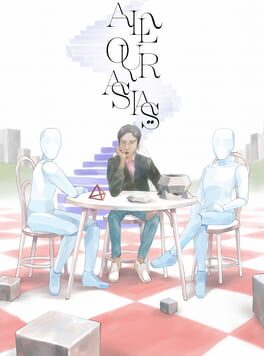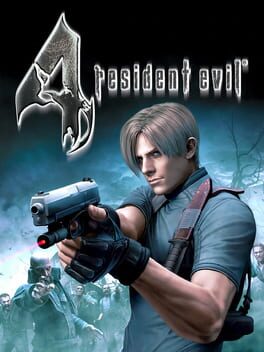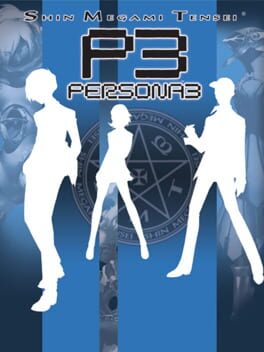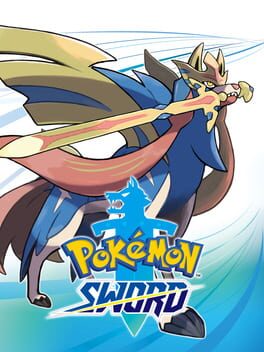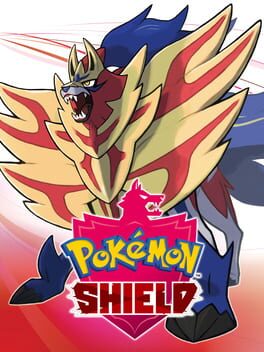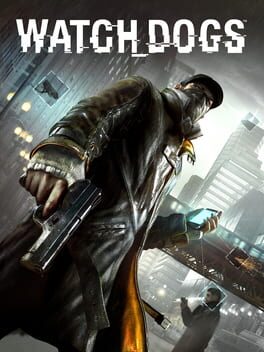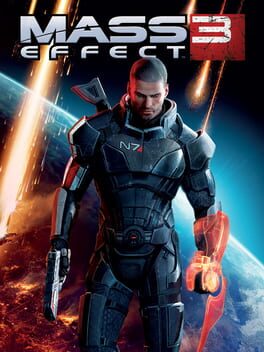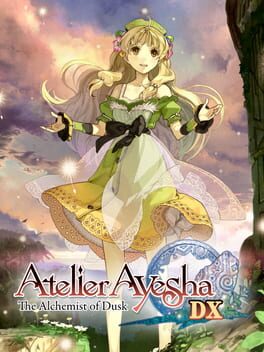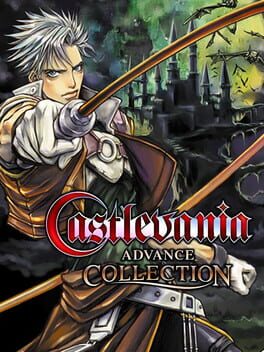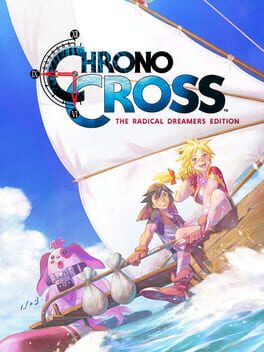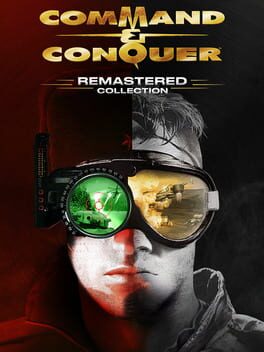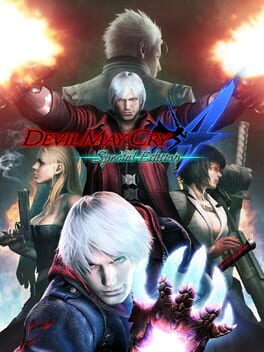fascinator
1456 reviews liked by fascinator
This review contains spoilers
"Inside the butchered goose was nothing but it's bloody entrails.
Those who have plenty want more and so lose all they have.
That is the moral of this tale. But if you ask me, it's a silly one. A woman seeking to better her life? Who did so at her own peril?
And I wonder if I were her..
Would I have done the same thing?
Would I then be the one scorned?
If that's the case, I..."
Labyrinth of Galleria is an interesting game. While I initially did not hold much interest towards it as the previous entry in the Majo series before it, Refrain did not engage me that much in the few hours of it I tried, once I had actually opened Galleria it took very little for me to be immediately immersed into it's world.
Right from the very first scene, we're thrown into an story that while seemingly simple at first glance, gradually becomes more complex as the mysteries behind Galleria Manor and the labyrinth that rests underneath it begin to unravel. Before I talk more about the plot though, I would first like to discuss the gameplay, as that is foremost the crux and foundation of the game before the story.
Galleria's gameplay is very similar to Refrain's, only with there now being several QOL improvements, with the biggest one being that there is now 15 classes instead of 10 to choose from, giving the player a much more varied set to build their party off of.
However, that is where the similarities with Refrain end. Unlike Refrain, which had very standard dungeon design by DRPG standards, Galleria opts to go in the opposite direction, with it having rather more unorthodox design choices that distinguish it from it's predecessor, for better or worse. The most noticeable of these is the procedurally generated dungeons that are laid within the back half of the game. Despite how length consuming these might get (with the post game version of it being a whole 3k+ floors long), I never particularly found much issue with them, as I found the struggle in having to venture through them thematically relevant to the game's plot, especially in the case of the last one. What I moreso had an issue with is the game's insistence on backtracking. This usually isn't a problem for me in games, however in Galleria I honestly found it to be a pain in the ass purely cause of how obtuse and confusing dungeons like Narthex and Apse are to navigate when you're made to come back to them in the second half of the game to obtain random loot that the plot dictated as important. Regardless of my issues with it, I still found Galleria's dungeon crawling to be a rewarding experience that was worth my time.
There isn't much that I have to say about the combat system as I found it to be satisfactory enough, only that while it is fun at first, grinding in this game gradually starts to feel like a chore more than anything cause of how excessive it is, and I wouldn't blame anyone for not vibing with it.
The last real thing I have to comment on is the requests. Oh god, the requests. For part 1 of the game, you're required to do every request listed to get a certain item, or else you will be locked into the bad ending. This in itself I didn't find too bad, as most of the loot required for the requests in this part of the game are very common to find and you should find that any leftover requests will be dealt with rather quickly. No, what I really have an issue with is the requests in part 2, specifically Bocklin's.
For part 2, none of the requests are required for completion except for Bocklin's who you first meet in Narthex B7 in part 1, and who tells you to meet him again once the time is right. Completion of his requests is required in order to unlock the true ending as well as obtain items that will weaken the final boss, as without them you're basically powerless to it. This would be fine by itself if it wasn't for the fact that his requests for procuring such items in the first require you to obtain extremely rare loot that can take HOURS of your time to even find. This was the part of the game that frustrated me the most, as it was completely dependant on luck, and as such if you didn't find the loot on your first trek of a dungeon you would have to go back there again and again until you did. Once again, I do not blame anyone for thinking that this segment of the game is bullshit, because it is.
Overall, whilst Galleria's gameplay has alot of flaws to it in my eyes, it was all worth it in the end because of what I am going to discuss next; the story.
"Remember the past, present, and future... Remember your presence exists today, yesterday, and...tomorrow..! Right, you should be well aware of it now. You are ever present and nowhere present. You exist nowhere and everywhere."
The plot of Galleria largely follows the journeys of Eureka de Soleil and Nachiroux, two protagonists who much like the sun and the moon, are complete opposites of eachother, yet end up being drawn towards one another regardless. Eureka is happy go lucky and optimistic to a fault, to a point where she will help literally anyone if they ask her to, even if what she's being made to do is morally questionable, simply because her upbringing in an extremely strict family made her too scared of being thought of as useless to say no. Nachiroux, in contrast is the prime example of a shut-in; with her often pushing away people like Eureka and her mom away from her because of how much she can't stand to be with them due to her standoffish nature. Behind this mask though, is a very kind person that cares about both of the afforementioned people alot.
The reason why I brought these two up first is cause for me they were the focal point of Galleria's story, with me having endured through all of the trials and tribulations that the gameplay has purely to see them get a happy conclusion. That isn't to say I found the other plot elements to be subpar, no, far from it. I also thoroughly enjoyed plot threads such as the relationship between the main antag of the game Cecilia and tortured artist Bisto, whose tumultuous actions can be said to be what kickstarted this series of events in the first place. There is also the Moon Society, the secret group of witches who serve both as Nachi's mentors and friends as they struggle to fight against the phenomena that threatens to annihilate their world. From it, I found the relationship between Kitcat and Eureu (the Alstella world version of Eureka as well as the Oracle) to be especially touching. There is obviously much, much more to pick apart and analyse here, but these are just some of the examples that touched my heart personally. The last main thing that I would like to remark upon is Fantie, the player insert character for this game. Generally I find insert characters in games to be cheap and lazy, but Galleria does it perfectly. The way Fantie is handled within it's role to the plot is through it being an impartial observer in the form of a green slime lantern that follows Eureka and Nachi on their journey as well as commanding the Witch Brigade of puppets, which ensures that the player is given agency in the plot, but not too much that it feels like self gratification as is the case with self insert characters in other games.
"But this unparalleled scene of despair... after everything you've witnessed, doesn't this seem like a starting point toward hope to you now?"
At the end of the day Galleria is a game about overcoming struggles. It is a game about overcoming an impossible future, about slicing the goose open to reach the best conclusion possible no matter what it takes. And that is exactly why despite my complaints about it, the unforgiving gameplay it has is extremely fitting for this type of narrative. Just as Eureka is made to endure thousands of years to save Nachi, so does the player have to struggle for hours in the 3651 floor postgame dungeon, to see that happy ending come to light no matter what. And that is what I find so beautiful about Galleria.
"Let's go see the flowers when you wake up... It's a promise."
Those who have plenty want more and so lose all they have.
That is the moral of this tale. But if you ask me, it's a silly one. A woman seeking to better her life? Who did so at her own peril?
And I wonder if I were her..
Would I have done the same thing?
Would I then be the one scorned?
If that's the case, I..."
Labyrinth of Galleria is an interesting game. While I initially did not hold much interest towards it as the previous entry in the Majo series before it, Refrain did not engage me that much in the few hours of it I tried, once I had actually opened Galleria it took very little for me to be immediately immersed into it's world.
Right from the very first scene, we're thrown into an story that while seemingly simple at first glance, gradually becomes more complex as the mysteries behind Galleria Manor and the labyrinth that rests underneath it begin to unravel. Before I talk more about the plot though, I would first like to discuss the gameplay, as that is foremost the crux and foundation of the game before the story.
Galleria's gameplay is very similar to Refrain's, only with there now being several QOL improvements, with the biggest one being that there is now 15 classes instead of 10 to choose from, giving the player a much more varied set to build their party off of.
However, that is where the similarities with Refrain end. Unlike Refrain, which had very standard dungeon design by DRPG standards, Galleria opts to go in the opposite direction, with it having rather more unorthodox design choices that distinguish it from it's predecessor, for better or worse. The most noticeable of these is the procedurally generated dungeons that are laid within the back half of the game. Despite how length consuming these might get (with the post game version of it being a whole 3k+ floors long), I never particularly found much issue with them, as I found the struggle in having to venture through them thematically relevant to the game's plot, especially in the case of the last one. What I moreso had an issue with is the game's insistence on backtracking. This usually isn't a problem for me in games, however in Galleria I honestly found it to be a pain in the ass purely cause of how obtuse and confusing dungeons like Narthex and Apse are to navigate when you're made to come back to them in the second half of the game to obtain random loot that the plot dictated as important. Regardless of my issues with it, I still found Galleria's dungeon crawling to be a rewarding experience that was worth my time.
There isn't much that I have to say about the combat system as I found it to be satisfactory enough, only that while it is fun at first, grinding in this game gradually starts to feel like a chore more than anything cause of how excessive it is, and I wouldn't blame anyone for not vibing with it.
The last real thing I have to comment on is the requests. Oh god, the requests. For part 1 of the game, you're required to do every request listed to get a certain item, or else you will be locked into the bad ending. This in itself I didn't find too bad, as most of the loot required for the requests in this part of the game are very common to find and you should find that any leftover requests will be dealt with rather quickly. No, what I really have an issue with is the requests in part 2, specifically Bocklin's.
For part 2, none of the requests are required for completion except for Bocklin's who you first meet in Narthex B7 in part 1, and who tells you to meet him again once the time is right. Completion of his requests is required in order to unlock the true ending as well as obtain items that will weaken the final boss, as without them you're basically powerless to it. This would be fine by itself if it wasn't for the fact that his requests for procuring such items in the first require you to obtain extremely rare loot that can take HOURS of your time to even find. This was the part of the game that frustrated me the most, as it was completely dependant on luck, and as such if you didn't find the loot on your first trek of a dungeon you would have to go back there again and again until you did. Once again, I do not blame anyone for thinking that this segment of the game is bullshit, because it is.
Overall, whilst Galleria's gameplay has alot of flaws to it in my eyes, it was all worth it in the end because of what I am going to discuss next; the story.
"Remember the past, present, and future... Remember your presence exists today, yesterday, and...tomorrow..! Right, you should be well aware of it now. You are ever present and nowhere present. You exist nowhere and everywhere."
The plot of Galleria largely follows the journeys of Eureka de Soleil and Nachiroux, two protagonists who much like the sun and the moon, are complete opposites of eachother, yet end up being drawn towards one another regardless. Eureka is happy go lucky and optimistic to a fault, to a point where she will help literally anyone if they ask her to, even if what she's being made to do is morally questionable, simply because her upbringing in an extremely strict family made her too scared of being thought of as useless to say no. Nachiroux, in contrast is the prime example of a shut-in; with her often pushing away people like Eureka and her mom away from her because of how much she can't stand to be with them due to her standoffish nature. Behind this mask though, is a very kind person that cares about both of the afforementioned people alot.
The reason why I brought these two up first is cause for me they were the focal point of Galleria's story, with me having endured through all of the trials and tribulations that the gameplay has purely to see them get a happy conclusion. That isn't to say I found the other plot elements to be subpar, no, far from it. I also thoroughly enjoyed plot threads such as the relationship between the main antag of the game Cecilia and tortured artist Bisto, whose tumultuous actions can be said to be what kickstarted this series of events in the first place. There is also the Moon Society, the secret group of witches who serve both as Nachi's mentors and friends as they struggle to fight against the phenomena that threatens to annihilate their world. From it, I found the relationship between Kitcat and Eureu (the Alstella world version of Eureka as well as the Oracle) to be especially touching. There is obviously much, much more to pick apart and analyse here, but these are just some of the examples that touched my heart personally. The last main thing that I would like to remark upon is Fantie, the player insert character for this game. Generally I find insert characters in games to be cheap and lazy, but Galleria does it perfectly. The way Fantie is handled within it's role to the plot is through it being an impartial observer in the form of a green slime lantern that follows Eureka and Nachi on their journey as well as commanding the Witch Brigade of puppets, which ensures that the player is given agency in the plot, but not too much that it feels like self gratification as is the case with self insert characters in other games.
"But this unparalleled scene of despair... after everything you've witnessed, doesn't this seem like a starting point toward hope to you now?"
At the end of the day Galleria is a game about overcoming struggles. It is a game about overcoming an impossible future, about slicing the goose open to reach the best conclusion possible no matter what it takes. And that is exactly why despite my complaints about it, the unforgiving gameplay it has is extremely fitting for this type of narrative. Just as Eureka is made to endure thousands of years to save Nachi, so does the player have to struggle for hours in the 3651 floor postgame dungeon, to see that happy ending come to light no matter what. And that is what I find so beautiful about Galleria.
"Let's go see the flowers when you wake up... It's a promise."
To be honest, I didn't exactly come in with my arms wide open. The fears of a formally continuist sequel of something that was very expressive because its own peculiar use of its forms increased shortly after starting. A setting to choose how long you want the day to be, collectibles around the map, a character that tells you where to see the events of each day, afraid of giving you back freedom in a larger world, overall details that seem treated with less care and a feeling of experiencing the same but worse. It's a shame that every time the game tries to awkwardly recall the intentions of its predecessor, it pales considerably (one clear instance: the previously essential narrator is now dispensable in the few arbitrary moments it appears).
Luckily, it takes just a few days to see that the direction taken is right. The facts that the protagonist's father never appears, that the plot of the future sibling remains in the background, or that the reminiscing aspect of the tale is anecdotic are no coincidence. The form, weighed down by losing part of its meaning, becomes a perfect vehicle to explore a more passive exploration of the surrounding drama.
Here Boku does not so much embody a reflexive portrait of childhood and growth, as he is more a supporting device for the rest of the cast. Accordingly, the most dramatically charged plots revolve less around Boku's family and more around the neighbors and visitors. These take advantage of the kid's innocent and outsider approach to deal with a common yet always specific issue: yearn. Yearn because of the distance between mother and daughter, between father and son, between lovers, between Earth and outer space, between past and present and future, between the world of humans and the one that is not ours, between life and what lies beyond. And the fears that all of these yearnings may never be answered.
That most of the conflicts end up in an open ended bittersweet quiet note resonates with the setting of the small coastal village. A place to get away from and to be taken away from the world. The ever-present sound of the waves, which inevitably move these desires in the tide just as the moon changes phase in the last shot of each day.
It’s not that Boku's appearance solves all these yearnings, but his mere interest in observing the world around him and serving as a confessional escape mechanism at least alleviates the pain. The game takes a passive stance where listening to one another is the greatest act of kindness, where what little evil appears to exist in the world has nothing but a noble and melancholic origin. Who knows what the future may hold, what to do but to hope for the best and reach for our hands within the tide.
Luckily, it takes just a few days to see that the direction taken is right. The facts that the protagonist's father never appears, that the plot of the future sibling remains in the background, or that the reminiscing aspect of the tale is anecdotic are no coincidence. The form, weighed down by losing part of its meaning, becomes a perfect vehicle to explore a more passive exploration of the surrounding drama.
Here Boku does not so much embody a reflexive portrait of childhood and growth, as he is more a supporting device for the rest of the cast. Accordingly, the most dramatically charged plots revolve less around Boku's family and more around the neighbors and visitors. These take advantage of the kid's innocent and outsider approach to deal with a common yet always specific issue: yearn. Yearn because of the distance between mother and daughter, between father and son, between lovers, between Earth and outer space, between past and present and future, between the world of humans and the one that is not ours, between life and what lies beyond. And the fears that all of these yearnings may never be answered.
That most of the conflicts end up in an open ended bittersweet quiet note resonates with the setting of the small coastal village. A place to get away from and to be taken away from the world. The ever-present sound of the waves, which inevitably move these desires in the tide just as the moon changes phase in the last shot of each day.
It’s not that Boku's appearance solves all these yearnings, but his mere interest in observing the world around him and serving as a confessional escape mechanism at least alleviates the pain. The game takes a passive stance where listening to one another is the greatest act of kindness, where what little evil appears to exist in the world has nothing but a noble and melancholic origin. Who knows what the future may hold, what to do but to hope for the best and reach for our hands within the tide.
Ridge Racer Type 4
1998
I'm not particularly a big fan of racing games. Sure, I'm always down for a bit of Mario Kart and I always tend to play a few at arcades, but I've never really been into a racing game before.
Not until I played Ridge Racer Type 4.
R4 is one of the most slick games to ever exist. When most people think of this game, the first thing that comes into mind is the soundtrack, and I can't say I blame them. Songs like Motor Species, Move Me, and Movin' in Circles are absolutely incredible. On top of that, R4 heavily benefits from its visual style and PS1 graphics. All of this comes together culminating in what I can only describe as a 2000's Playstation Summer Daydream.
A daydream in which you can pull off some of the sickest drifts and victories known to man, and enter the ultimate trance that is the Real Racing Roots '99 Grand Prix.
I'm not particularly a big fan of racing games, but Ridge Racer Type 4?
"He's the one for me."
Not until I played Ridge Racer Type 4.
R4 is one of the most slick games to ever exist. When most people think of this game, the first thing that comes into mind is the soundtrack, and I can't say I blame them. Songs like Motor Species, Move Me, and Movin' in Circles are absolutely incredible. On top of that, R4 heavily benefits from its visual style and PS1 graphics. All of this comes together culminating in what I can only describe as a 2000's Playstation Summer Daydream.
A daydream in which you can pull off some of the sickest drifts and victories known to man, and enter the ultimate trance that is the Real Racing Roots '99 Grand Prix.
I'm not particularly a big fan of racing games, but Ridge Racer Type 4?
"He's the one for me."
life might be worth living, actually
things irl have been kind of miserable lately so I desperately needed to play a game that would make me feel something. of all things a pokemon isekai game for babies succeeded at this and it's mostly thanks to a bisexual grovyle. It's the single game I've played all year (other than mother 1, but I started that in 2023 and finished literally minutes after new year) that has actually invoked a reaction from me other than just nostalgia like all the mainline pokemon replays i've done. this was also a replay so despite knowing how things were going to turn out I still wound up being moved by it all
one of pmd's most appealing aspects is the world you're transported to. my enjoyment of and how much im able to resonate with mainline pokemon games fringes on its regions, but the world of pmd specifically just has a totally unmatched sense of belonging. you're immediately thrust into a welcoming, tightly-knit community of people with similar goals and the congregation of these people serves as the game's hub area for its entire runtime. all of these people, including you, has a purpose, and your presence leaves a positive impact on all of them - especially your partner. i think it's a rare example of a game actually conveying to the player that they are a part of the game world and that they as a person matter - that the world would be different without them. even minor npcs are given constantly changing dialogue thanks in part to the narrative's episodic structure - shoutouts to the toxic-yaoi wurmple-swellow duo.
spoilers for this paragraph: the latter portion of the game's narrative is what ties all of this in a neat bow for me. i've already harped on about how defying fate and saving the future is one of my favourite tropes in fiction in countless other reviews and it's no different here. there's just something so viscerally empowering about characters like grovyle or lucina or future trunks with the resolve to push on even in the most bleak of circumstances and to fight for a better tomorrow. pmd2 is one of the better examples of this given you get to experience that future firsthand and it's one of the few examples of showing the sacrifices that have to be made when messing with timelines. i hadn't actually played the grovyle postgame episode before now so that likely played a big part in the game still resonating with me despite this being a replay. that or it's because Arata Iiyoshi's compositions never fail to give me goosebumps. such an underappreciated composer, their only vgm works are seemingly for the pmd series as well as various beatmania and ddr games, and no one ever seems to bring them up by name.
probably my single gripe with pmd is that characters aside from your custom named protagonist and partner just use their normal pokemon names. no other pokemon game will make me care as much about a loudred or a wigglytuff or the other guild members but giving unique names to important story characters would've gone a long way i think. all the character personalities are so easily distinguishable already though so it's ultimately a minor complaint. doesn't stop this from being peak fiction. the gameplay is also just kinda ok but I enjoy it and tbh it's really not what you're playing this for lol
it's a monster house
things irl have been kind of miserable lately so I desperately needed to play a game that would make me feel something. of all things a pokemon isekai game for babies succeeded at this and it's mostly thanks to a bisexual grovyle. It's the single game I've played all year (other than mother 1, but I started that in 2023 and finished literally minutes after new year) that has actually invoked a reaction from me other than just nostalgia like all the mainline pokemon replays i've done. this was also a replay so despite knowing how things were going to turn out I still wound up being moved by it all
one of pmd's most appealing aspects is the world you're transported to. my enjoyment of and how much im able to resonate with mainline pokemon games fringes on its regions, but the world of pmd specifically just has a totally unmatched sense of belonging. you're immediately thrust into a welcoming, tightly-knit community of people with similar goals and the congregation of these people serves as the game's hub area for its entire runtime. all of these people, including you, has a purpose, and your presence leaves a positive impact on all of them - especially your partner. i think it's a rare example of a game actually conveying to the player that they are a part of the game world and that they as a person matter - that the world would be different without them. even minor npcs are given constantly changing dialogue thanks in part to the narrative's episodic structure - shoutouts to the toxic-yaoi wurmple-swellow duo.
spoilers for this paragraph: the latter portion of the game's narrative is what ties all of this in a neat bow for me. i've already harped on about how defying fate and saving the future is one of my favourite tropes in fiction in countless other reviews and it's no different here. there's just something so viscerally empowering about characters like grovyle or lucina or future trunks with the resolve to push on even in the most bleak of circumstances and to fight for a better tomorrow. pmd2 is one of the better examples of this given you get to experience that future firsthand and it's one of the few examples of showing the sacrifices that have to be made when messing with timelines. i hadn't actually played the grovyle postgame episode before now so that likely played a big part in the game still resonating with me despite this being a replay. that or it's because Arata Iiyoshi's compositions never fail to give me goosebumps. such an underappreciated composer, their only vgm works are seemingly for the pmd series as well as various beatmania and ddr games, and no one ever seems to bring them up by name.
probably my single gripe with pmd is that characters aside from your custom named protagonist and partner just use their normal pokemon names. no other pokemon game will make me care as much about a loudred or a wigglytuff or the other guild members but giving unique names to important story characters would've gone a long way i think. all the character personalities are so easily distinguishable already though so it's ultimately a minor complaint. doesn't stop this from being peak fiction. the gameplay is also just kinda ok but I enjoy it and tbh it's really not what you're playing this for lol
it's a monster house
Final Fantasy XVI
2023
54 lists liked by fascinator
by Osiera |
14 Games
by Suall |
50 Games
by Snigglegros |
75 Games
by CorpsSansOrganes |
108 Games
by CorpsSansOrganes |
52 Games
by Bells |
69 Games
by chandler |
35 Games
by chandler |
23 Games
